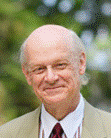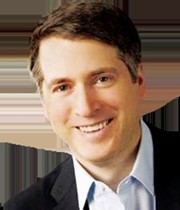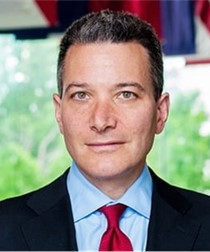La Salle University
The John Henry Newman Lecture Series 2023-2024
La Salle University Art Museum
6:30 – 8:00 p.m.
Admission is free for all events.
Join us for lectures by prominent academics, intellectuals, and civic leaders providing the La Salle community, alumni, our partners as well as high school students and their parents from across the tri-state area with opportunities to learn new perspectives, to think critically about salient issues confronting society, and to engage in civil dialogue with one another.
The focus of the series revolves around the Idea of a University and examine the nature and value of Knowledge, Liberal Education, Freedom of Conscience, and Religion within the context of the western liberal tradition.
There will be a reception/meet and greet after each lecture so attendees can engage with the speakers and other attendees in an informal environment.
September 27 – Western Civilization: Is It Worth Defending?
Joseph Loconte, PhD
September 27, 2023
Professor Loconte will explore some of the distinctive political and cultural achievements of Western Civilization: the commitment to reason in the pursuit of truth; the importance of natural law and natural rights to the concept of self-government; and the civilizing influence of the Jewish and Christian traditions in Western culture. He will argue that the transmission of this history—especially through the teaching of the humanities—offers a pathway to democratic renewal.
Joseph Loconte, PhD, is a Presidential Scholar in Residence at New College of Florida and the C.S. Lewis Scholar for Public Life at Grove City College. He also serves as a Senior Fellow at the Institute on Religion and Democracy in Washington, D.C. Joe is the author of The New York Times bestseller A Hobbit, a Wardrobe, and a Great War: How J.R.R. Tolkien and C.S. Lewis Rediscovered Faith, Friendship, and Heroism in the Cataclysm of 1914-1918. His most recent book is God, Locke, and Liberty: The Struggle for Religious Freedom in the West.
Mr. Loconte’s essays have appeared in the nation’s leading media outlets, including: The New York Times, The Wall Street Journal, National Affairs, The New Criterion, The National Interest, National Review, and Law and Liberty.
October 23 – Lincoln and Frederick Douglas Debate Slavery and Equality in the Constitution
Joseph R. Fornieri
October 23, 2023
Professor Fornieri’s lecture will explore the thought of two prominent thinkers, politicians, and statesmen, Abraham Lincoln and Frederick Douglas. Both men advocated for the end of slavery on the US continent and shared very similar views about whether the constitution upon which the US was founded was indeed a fundamental problem in promoting equality for all. Forneiri will explore the complexity of two men’s journey to reconcile the promises of equality for all with the reality of holding other men in bondage.

Joseph R. Fornieri is Professor of Political Science at the Rochester Institute of Technology. He is an expert on the political thought and statesmanship of Abraham Lincoln. He is the author/editor of numerous articles and four books on the Sixteenth President, including the acclaimed Abraham Lincoln’s Political Faith, a work that explores Lincoln’s religion and politics, and The Language of Liberty, an annotation and commentary of Lincoln’s speeches and writings. In 2009, Fornieri taught at Charles University in Prague on a Fulbright teaching award. He was the recipient of the Eisenhart Award for Outstanding Teaching at the Rochester Institute of Technology in 2004 for Junior Faculty and again in 2010 for Tenured Faculty. Dr. Fornieri has most recently been working on a book about Lincoln’s Statesmanship, which will be published by Southern Illinois University Press in the near future.
January 29 – Our Ancient Faith: Lincoln, Democracy, and the American Experiment
Allen Guelzo
January 29, 2024

Professor Guelzo’s lecture will take his audience through the US journey through the tumultuous years of the Civil War and Reconstruction era and its impact on modern democracy and the American experiment in democratic government.
Dr. Allen Guelzo is currently the Thomas W. Smith Distinguished Research Scholar in the James Madison Program in American Ideals and Institutions at Princeton University, where he also directs the Madison Program’s Initiative on Politics and Statesmanship. A scholar, whose works are acclaimed by both the New York Times and the Wall Street Journal, Dr. Guelzo is the author of Abraham Lincoln: Redeemer President, Lincoln’s Emancipation Proclamation: The End of Slavery in America, and Lincoln and Douglas: The Debates That Defined America; Gettysburg: The Last Invasion His most recent books are Reconstruction: A Concise History (Oxford University Press, 2019), and Robert E. Lee: A Life (Knopf, 2021) and Our Ancient Faith: Lincoln, Democracy, and the American Experiment (Knopf, 2023)
February 28 – Editing the Classics: The End of Free Speech and the Beginning of a New McCarthyism
Rich Lowry
February 28, 2024

We are living through a war on free speech and thought that extends from contemporary political debates to masterpieces of literature that are being edited to suit contemporary fashions. This campaign is deeply illiberal and should be resisted by all people of good will, right, left, and center. Free speech is essentially to the American experiment and to establishing, through free and fair debate, what is truth.
Rich Lowry is the editor in chief of the National Review. He writes for Politico, and often appears on such public-affairs programs as Meet the Press. He is a regular panelist on the KCRW program Left, Right & Center. He is the author of Lincoln Unbound, The Case for Nationalism: How It Made Us Powerful, United, and Free, and Legacy: Paying the Price for the Clinton Years — a New York Times bestseller. Lowry began his career as a research assistant for Charles Krauthammer. In 1997 he was selected by William F. Buckley to lead National Review.
March – The Pursuit of Happiness: How Classical Writers on Virtue Inspired the Founders and Defined America
Jeff Rosen
March 2024

The Declaration of Independence identified “the pursuit of happiness” as one of our unalienable rights as Americans, right alongside life and liberty. Today, we think of happiness as the pursuit of pleasure. By reading the classical Greek and Roman moral philosophers who inspired the Founders, Jeffrey Rosen shows us how they understood the pursuit of happiness as a quest for being good, not feeling good—the pursuit of lifelong virtue, not short-term pleasure. Using profiles of six of the most influential founders (Benjamin Franklin, George Washington, John Adams, Thomas Jefferson, James Madison, and Alexander Hamilton), we will examine how their pursuit of virtue was incompatible with the enslavement of African Americans and how through it these six Virginians betrayed their own principles.
Jeffrey Rosen is the President/Chief Executive Officer of the National Constitution Center where he developed the Interactive Constitution, which brings together the top conservative and liberal legal scholars in America to discuss areas of agreement and disagreement about every clause of the Constitution. He is also professor of law at The George Washington University Law School and a contributing editor of The Atlantic. He is a highly regarded journalist whose essays and commentaries have appeared in the New York Times Magazine, on National Public Radio, in the New Republic, where he was the legal affairs editor, and The New Yorker, where he was a staff writer. The Los Angeles Times called him “the nation’s most widely read and influential legal commentator.” Jeffrey is the author of six books including, his upcoming book, The Pursuit of Happiness: How Classical Writers on Virtue Inspired the Lives of the Founders and Defined America, and also recently, Conversations with RBG: Justice Ruth Bader Ginsburg on Life, Love, Liberty, and Law.
April 9 – Campus Censorship and the End of Free Speech
Greg Lukianoff
April 9, 2024

Recent polls indicate that today, over thirty percent of all university students, regardless of demographics beliefs or partisan affiliation, feel pressure to self-censor their comments in the classroom and to conform to the norm. Rich will explore how such a trend on campuses hurts academic freedom and ultimately endangers the American democratic experiment.
Greg Lukianoff is an attorney, a New York Times best-selling author, and the President and CEO of the Foundation for Individual Rights and Expression. He is the author of Unlearning Liberty: Campus Censorship and the End of American Debate, Freedom From Speech, Guide to Free Speech on Campus, and he co-authored The Coddling of the American Mind: How Good Intentions and Bad Ideas Are Setting Up a Generation for Failure with Jonathan Haidt. Most recently, Greg co-authored The Canceling of the American Mind: Cancel Culture Undermines Trust and Threatens Us All —But There Is a Solution with Rikki Schlott. Greg is also an Executive Producer of Can We Take a Joke? (2015) and of Mighty Ira: A Civil Liberties Story (2020), an award-winning feature-length film about the life and career of former ACLU Executive Director Ira Glasser.
About St. John Henry Newman

St John Henry Newman (1801-1890) was an English philosopher, polymath, theologian, poet, academic, historian and writer, and an ardent advocate of the Liberal Arts. Newman was a fervent student of the Classics as well as an avid reader of the works of Walter Scott, Voltaire, Thomas Paine and David Hume. He began his career as an Anglican theologian/deacon and held a professorship at the University of Oxford. As member of the Oxford Movement, Newman sought to reconcile the divergent traditions of the Anglican and Catholic Churches, calling for a close consideration of their theological and historical commonalities. After much reflection and self-examination, Newman eventually converted to Catholicism. He later became a cardinal, and, in October 2019, was canonized by Pope Francis. His feast day is October 9th. Newman’s works include Lyria Apostolica (1836), Essay on the Development of Christian Doctrine (1845), and An Essay in Aid of a Grammar of Assent (1870), his seminal work on the philosophy of Faith. Attendees are encouraged to choose from one of the many collections of Newman’s works, such as The Idea of the University, A Newman Reader, or Seeking God with Saint John Henry Newman. Additionally, please consider Newman 101: An Introduction to the Life and Philosophy of John Cardinal Newman by Roderick Strange and John Henry Newman: A Biography by Ian Ker.
About St. John Baptist De La Salle

The Brothers of the Christian Schools was founded in 1680 by Jean Baptist de La Salle, the Patron Saint of Teachers. De La Salle hailed from a wealthy family in Reims, France, and earned a doctorate in theology. A chance encounter with a man who wanted to start a school for the poor eventually became De La Salle’s calling. With the help of a small group of laymen, De La Salle would leave his prospects of comfort and luxury to establish schools that educated the poor children of Reims and beyond.